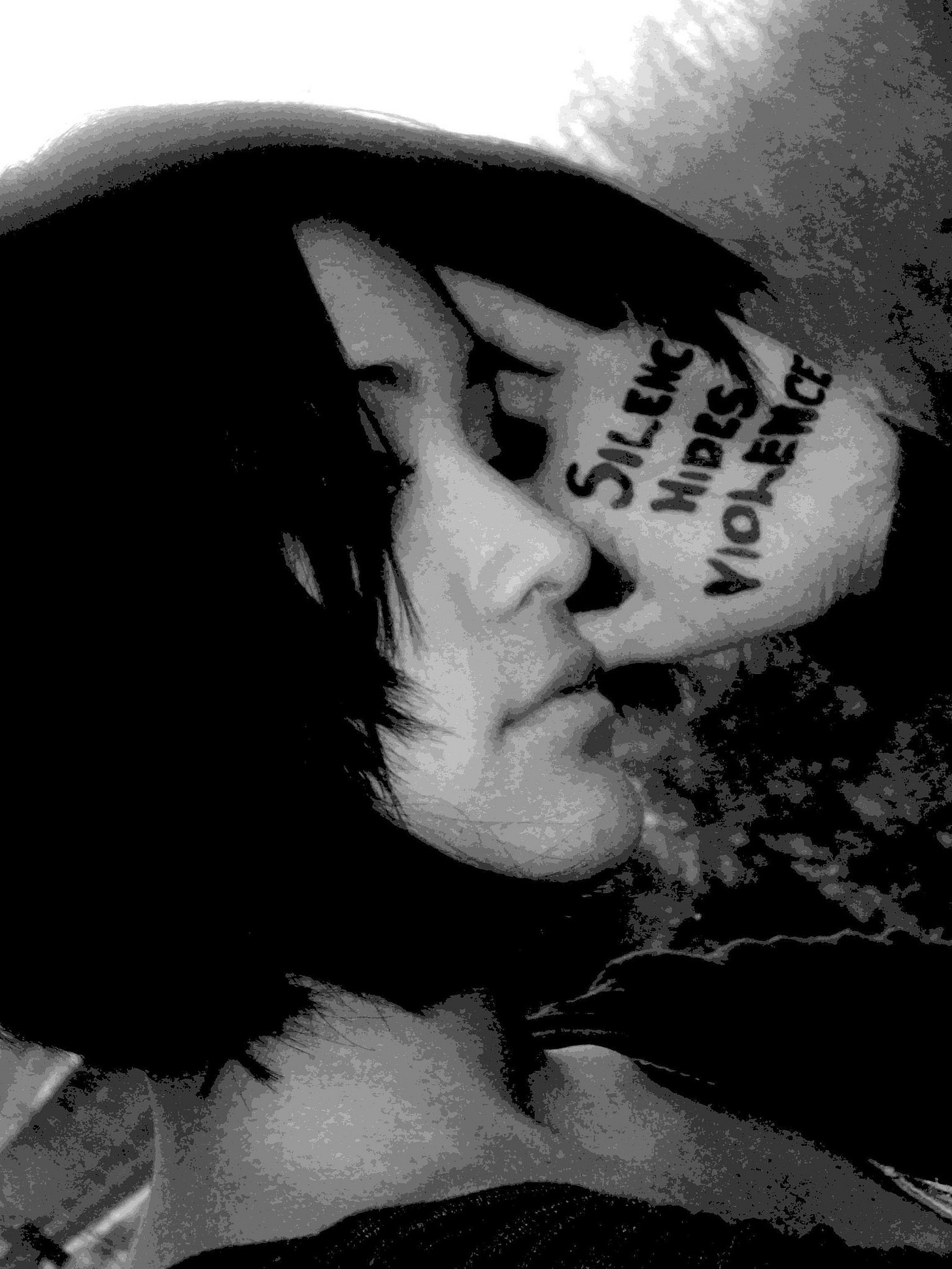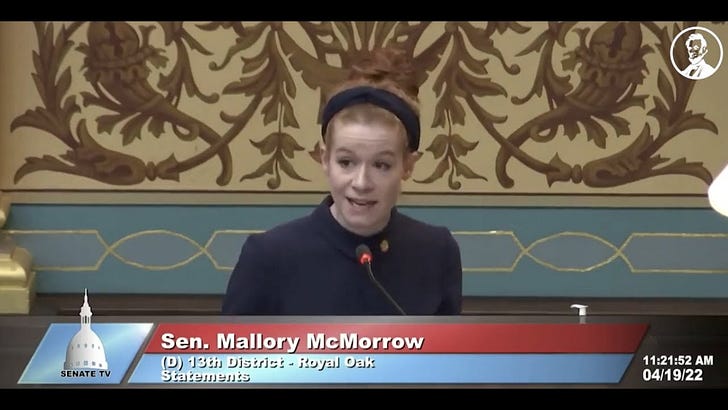Welcome back Chaise Lounge readers! It’s always a delight to speak/write to you each week and hear your responses. October is National Domestic Violence Awareness month, so today we will be taking a look at both the improvements made and the long way we need to go in preventing domestic violence and sexual violence, which many times go hand in hand. Yes, it’s a heavy topic, but it is one we need to address at a cultural level. I hope that you come away from today’s read with some thoughts about changes you can make in your own communities. We can dream big and do our best to make them a reality. But first, onto the news updates!
National Updates
Woman Convicted Of Manslaughter Over Miscarriage In Oklahoma
Brittney Poolaw was convicted of manslaughter in the miscarriage of her 15-17 week old fetus. At that age, the fetus was non-viable. Ms. Poolaw admitted to using drugs days prior to the miscarriage, but the autopsy showed that the fetus had significant congenital abnormalities. While medical professionals testified that they could not rule out the drug use as a cause of the miscarriage, they also noted the severe congenital abnormalities as a likely cause. Nevertheless, the judge found her guilty. This is a frightening precedent as more state legislatures move toward laws giving non-viable fetuses more protection than the woman carrying them.
Women are underrepresented in studies of stroke
In yet another example of the ways that women’s health gets short shrift, a new study shows that only 37% of research participants are women although men and women experience stroke at equal levels. Women tend to experience more severe impairment after a stroke, so it is important to eliminate this gender bias. The authors recommended that researchers should address the barriers that prevent women from enrolling in their studies. For example, studies that require multiple trips for the research are more difficult for women in caretaking roles.
Women’s Health Research at Yale is helping medicine to be inclusive of women
Carolyn M. Mazure, the director of Women’s Health Research at Yale, supports funding research that focuses on women’s health throughout all areas of medicine. One area of focus is to update Yale School of Medicine’s curriculum for future generations of doctors. A 2019 study found that Yale’s medical curriculum deeply discounted the impact of sex and gender. They are also looking at the language used in medicine. Because so much research on diseases was completed on men only, the term “atypical,” is often used to describe symptoms of a disease as they appear in women. The goal is for doctors to gain a better understanding of the role that gender plays in symptom expression.
Abortion Law Updates
The Justice Department has asked the Supreme Court to once again decide on the constitutionality of Texas Senate Bill 8. It appears the Court will act quickly as Justice Samuel Alito has asked for briefs to be submitted by today (Thursday). The Justice Department’s argument centers on the method by which the law circumvents the courts and concerns that states may use this method for other issues like gun control.
We Need an Increase of Awareness of Mail Order Abortion Pill Options
A recent article in The Atlantic describes the lack of awareness among Americans regarding medication abortions. While thirty-nine percent of all abortions are administered through medication, many people are unaware that this is an option. With states creating all sorts of rules around the prescribing of the pills, a mail order business has evolved circumventing the need to go to a clinic to obtain the pills. Unless the government wants to start checking each pregnant person’s mailbox, it will be hard to stop people from ordering the pills online.
The Root of Sexual Violence: Our Culture
Recently, while reading the morning newspaper, my husband threw it down in disgust saying, “Every story today was about sexual abuse.” He wasn’t wrong. The local newspaper had been doing a weeklong expose about abuse at the North Carolina School of the Arts at the same time that the Catholic church announce 300,000 French children had been abused by priests and clergy over the decades. It makes you stop to think. If sexual abuse is so rampant, why isn’t it considered a public health emergency?
Anita Hill and Christine Blasey-Ford pave a path
If you haven’t already discovered it, I highly recommend listening to the podcast “Because of Anita”. The episodes feature discussions of the ways that Professor Anita Hill’s testimony at the Senate confirmation hearings for Justice Clarence Thomas in 1991 created a vocabulary for women to come forward to report sexual harassment and abuse. We owe Anita Hill an incredible debt. Before those hearings, no one really knew how to go about making a coherent case to fight sexual harassment. The podcast also includes a fascinating conversation between Professor Hill and Dr. Christine Blasey-Ford. While the entire four-episode podcast is necessary listening, I found a few parts of the discussion especially meaningful.
In the final episode, hosts Salamisha Tillet and Cindi Lieve ask #MeToo founder, Tarana Burke, about the lack of funding for sexual harassment and assault even after the huge #MeToo revelations in 2017. Ms. Burke’s reply was very insightful,
“...if we don’t get people to understand that disrupting rape culture is at the root of ending sexual violence, and if we don’t put resources out into changing the narrative of what people understand about both sexual violence, rape culture and survival, then it is a hindrance to us really getting our work done.”
While the use of the term “rape culture” may confuse or turn some away from the issue, we do need to understand that we hold cultural attitudes that perpetuate these problems.
What exactly do we mean when we say rape culture?
According to UN Women, “Rape culture is the social environment that allows sexual violence to be normalized and justified, fueled by the persistent gender inequalities and attitudes about gender and sexuality. Naming it is the first step to dismantling rape culture.”
Examples of rape culture (from Marshall University) include:
Blaming the victim (“She asked for it!”)
Trivializing sexual assault (“Boys will be boys!”)
Sexually explicit jokes
Tolerance of sexual harassment
Inflating false rape report statistics
Publicly scrutinizing a victim’s dress, mental state, motives, and history
Gratuitous gendered violence in movies and television
Defining “manhood” as dominant and sexually aggressive
Defining “womanhood” as submissive and sexually passive
Pressure on men to “score”
Pressure on women to not appear “cold”
Assuming only promiscuous women get raped
Assuming that men don’t get raped or that only “weak” men get raped
Refusing to take rape accusations seriously
Teaching women to avoid getting raped instead of teaching men not to rape
Sound familiar?
If we simply look at the map below indicating the rate of rapes per 1,000 people, we can see that the United States has the ignominious rating of being one of the worst countries on the planet for rape. Normally, when we see a map like this rating our country so poorly, there is an outcry to make changes, but we have not seen that. Instead, we see people crying out “#MeToo”, but little in public policy changes.

Rape as an issue for the individual to deal with
Burke went on to say,
“I think that we have been socialized to see it as an individual issue. I think that people still don’t understand that sexual violence is violence...And because we haven’t had models that say that this is about collective responsibility, people haven’t been compelled to see it differently...This is about a shift in understanding what we owe survivors. If we are in community together and somebody is harmed in that community, we owe them something.”
Burke’s point about sexual assault being perceived as an individual issue is important. Seeing sexual assault as a public health problem, rather than an individual issue can create opportunities for changes in public policy. Imagine a world where the Violence Against Women Act is not used as a political football needing constant reauthorization. Imagine a world where everyone is taught to ask for consent before touching another person. Imagine a world where the onus is put on men to not sexually assault women rather than victim-blaming. These are achievable goals, but they require resources and public health campaigns.
Instead, we live with the reality that the few social supports for those who have been sexually abused have to beg for funding. And those who dare to speak up face unfathomable harassment.
Sexual assault, as a crime, is held to a different standard from other crimes. Because sexual assault is also perceived as a “women’s issue”, no matter how false that designation is, it becomes loaded with all sorts of gendered considerations, hence rape culture rears its ugly head again. We do have the occasional moments of reckoning, like both Professor Hill’s and Dr. Blasey-Ford’s testimony and the #MeToo social media hashtag. Each of these events has brought some positive movement, but they rely on people who have been assaulted to come forward and face the gauntlet of hate and dismissal thrown at them. We can do better.
Why do we say "I believe you"?
Another really interesting comment in the podcast came from Dr. Blasey-Ford. She says,
“When I met with people to tell them what had happened and they said, ‘I believe you’, it was admittedly a little bit awkward. sort of like I had told them my name is Christine and they had said, I believe you. So I think it comes from a wonderful place of support. It might be the only thing that we say that about that we say to a person, I believe you. And is that the most helpful thing to say? I’m not sure...But it just really occurs to me that when I have told people of other bad things that have happened to me in my life, the response wasn’t, I believe you.”
While many might think that saying “I believe you” is a supportive comment, it really is indicative of another facet of culture. You know, the one that implies that women lie all the time, especially about sex to get their way.
What would strong public policy look like?
The Centers for Disease Control (CDC) recognizes that sexual violence is a public health issue. They have developed a technical package to prevent sexual violence which is downloadable at no cost. The purpose of the package is to provide, “A comprehensive approach with preventive interventions at multiple levels of the social-ecological model (i.e., individual, relationship, community, and societal) is critical to having a population level impact on SV.” The package uses the model pictured below to address sexual violence.
The model includes methods for disrupting attitudes found in rape cultures and provides support for those who are likely targets of sexual violence. The only way to fight rape culture attitudes is with a systemic approach that is backed with the financing that is needed to implement such a program. Right now, we have pieces of the puzzle being implemented in a helter-skelter manner, but there is no overreaching impetus to make it a priority nor a regular and robust funding source.
For example, my local rape crisis center provides a program called Safe Touch for elementary schools. They go into the schools and talk with the children about consent before touching someone. But that program was almost cut from the budget this year because of problems with the funding stream. It was only when the director made a direct appeal to the community that funds were secured to keep the program going. If we truly considered sexual violence as a public health problem, it would never have been at risk of being cut.
And the problem is not just in the U.S.
In this clip, you will see Rachel Parris explain the situation in England with humor, although it is hard not to cringe at the canned laughter.
So what to do?
At this point, the most effective strategy is to keep talking about the issue. Put pressure on your elected officials to keep this conversation going and make smart policy decisions. Keep donating to the local organizations doing this good work. Continue to challenge friends and acquaintances when you hear them saying things that play into rape culture and ask them to keep you honest too! If you are raising children, make sure that you are talking to them about how to treat others and signs to watch out for in relationships. We must evolve past rape culture and it is going to take time, but first, we must acknowledge it as the root cause of sexual violence.
Just for fun
One of my favorite bands is Lake Street Dive. I was lucky enough to see them perform live this past Sunday. This particular song seems appropriate to add here. Enjoy “Being a Woman”

















Share this post